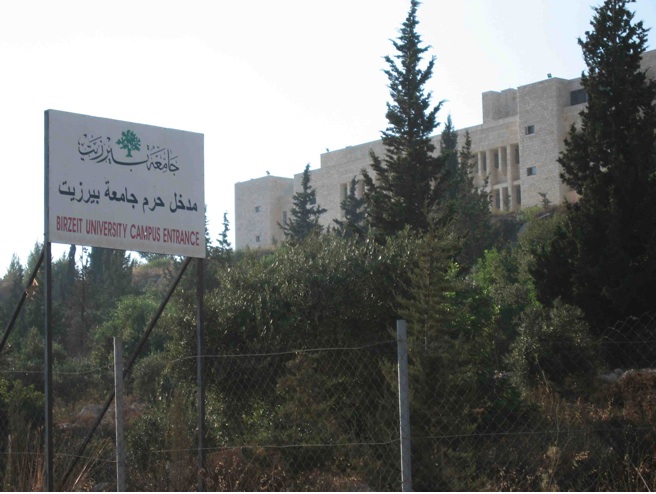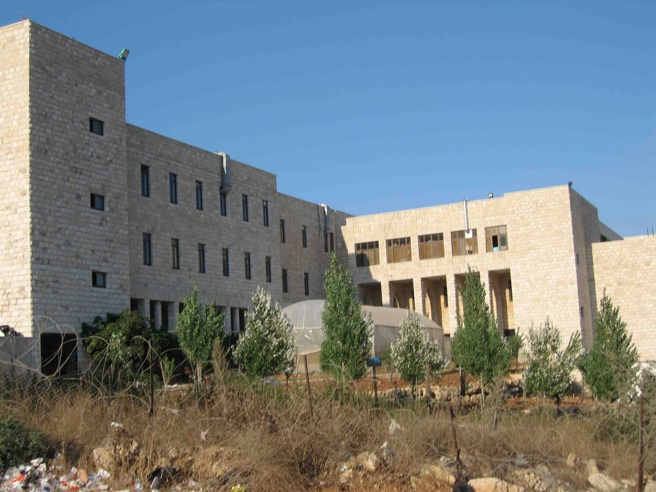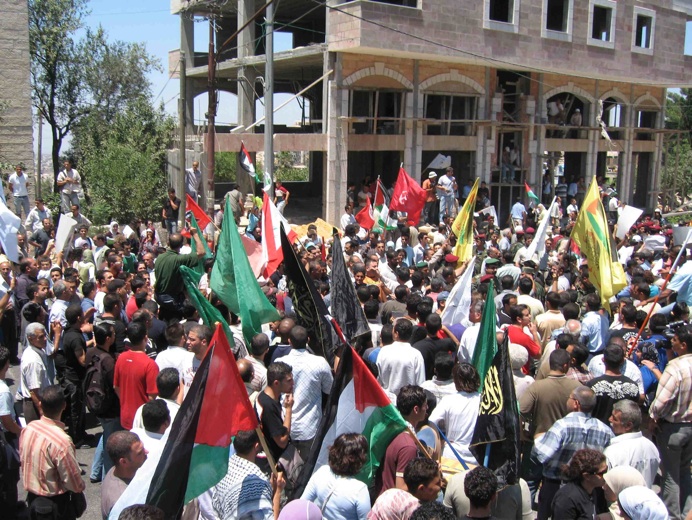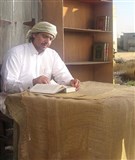Howl
Considering the fact that our literature workshop at Birzeit almost didn’t take place at all, it was a real success. We’d applied for a grant to teach a workshop to Palestinian university students through a fund administered by the US Department of Education and the State Department’s Public Diplomacy program. Despite the contacts that the consul in East Jerusalem had set up with our colleagues at Birzeit, we had a difficult time making arrangements. The department chair was away for the summer and didn’t respond to our emails as we tried to confirm our plan. Fortunately, David knew some people in other departments who connected us to Ahlam, a junior member of the English faculty. It turned out to be a perfect match—she was enthusiastic to have us come and meet with her students. She’d studied English modernism in America on a Fulbright. If she hadn’t drummed up support for us, I doubt it would have happened.
We finally figured out a time that would work for all of us, though when it came, it turned out to be the same day that an American diplomat was visiting Ramallah and the whole place was shut down for a general strike in protest. We told our driver that we wanted to go anyway.
When we arrived, we found two military jeeps parked at the entrance to the university. Students were throwing rocks at the vehicles while soldiers fired rubber bullets back at them. We waited with other cars as the scene unfolded. Then, for no reason, the army sped off with sirens flashing.

We followed others onto the campus and found it more or less empty of students, faculty and staff. When we got to the English Department, the door to the classroom was closed and there was no one in the building to tell us whether our event had been cancelled. We fretted about, took a walk around the campus, and then came back to wait some more.

Right as we were about to leave, Ahlam showed up and greeted us. She opened the door and then, in two large groups, the students came in. One by one they told us how they gone as a class to the demonstration outside the Muqataa. When I asked what that was, they explained it was the piles of concrete rubble we’d driven by in Ramallah. Later, someone told me that they still housed the remnants of the Palestine Authority’s government.
On our way to Birzeit, we’d seen the demonstration and even asked our driver to stop so we could watch from afar a bit of what was happening.

As soon as we saw the presidential guard descending with rocks and sticks and guns on the thousand or so young people who’d come to demonstrate, we got in the car and sped off. It seemed dangerous, and besides, we weren’t there to get into trouble.
The students had all been there and were anxious to talk about the event as we settled into our places in the classroom. The protest, they told us, was directed against the Americans.. The protest, they also told us, was also directed against President Mahmoud Abbas. One student claimed Abbas was the last American friend left in the Palestinian political arena. Another student said that Abbas needed these kinds of visits from the Americans, otherwise his irrelevance and weakness would be all to clear. We’d been briefed by the consul that we would hear such things.
The awkwardness began to evaporate as soon as we started the workshop, as soon as we began to dive into the text. The facilitator from USAID had told us to expect the students to be liberal and westernized. Still, a couple of us thought it was pushing the envelope to choose Allen Ginsberg’s poem “Howl” in view of its explicit references of sex, drug use, and poverty. But the students didn’t bat an eyelash at the material—on the contrary, they immediately wanted to talk about it.
They didn’t know us from Adam, nor us them. But in the course of the discussion that started, we got to know each other. Soon we were breaking through cultural walls. Most had grown up in Ramallah, Jerusalem and the villages around, but some had grown up abroad—in Russia, in Mexico, in Algeria, in the US. We found out later that the two women who wore the hijab both grew up in Brooklyn.
I don’t think I was fully prepared for what was going to happen that day. I’d gone there thinking we’d introduce the students to a piece of literature they might find interesting and I’d teach them something, if not about American literature itself, at least about how American critics talk about literature. What happened was slightly different.
We’d told them about how fundamentalists in Egypt had lobbied to ban a translation of Ginsberg’s poetry as being contrary to the norms of Islamic culture. We told them about the professor who’d taught the poem, and had been attacked—and censured by her university—for doing so. As we talked, most students stood up to defend the poem, saying that it was good literature—it expressed the experience of the author in an original and moving manner.
One student, Amal, very politely disagreed, asking the others by what standards they were defending the value of the book as literature. We asked her to elaborate, and she did: “I am sorry, but I am new to the English Department. Until now, I have never read an American poem. I have read lots of books of literature, history and poetry. But American poetry, no. Even so, I can say that I do not think that this poem is very special. The language is not especially beautiful in English, I think. There are no interesting metaphors, only scattered images of things. I cannot see the order of the arrangement. There is no story either, no plot. The subject matter is not moral. It ignores tradition. By what standards do you call this poem literature?”
I’d never heard the sentiment stated so directly in a classroom before. The discussion turned sharp and voices were raised as the others wanted to voice their disagreement. Amal was the lone dissenter, but the more we talked, the more I realized that her objections were serious and that none of us were effective in persuading her otherwise. During the break, we heard the others as the continued to argue with her. She wasn’t budging.
One student, Nadia, said something else I’d never heard before in a literature class. She said, “We can make literature whatever we want it to be. Literature is what we choose it to be, not what people tell us it is. Literature is something we make, not something we receive.” Though her statement was a bit romantic, it stuck in my mind no less than what Amal had said. In the end, the argument was left unresolved. Like I do in any seminar, I tried to synthesize all the opinions that were voiced, saying that literature was all these things—it was about honoring a tradition and breaking with it, it could be judged by objective standards or according to the subjective experience of the author or reader, and so on. In the end, I’m afraid I disappointed the students who’d expected me to take some sort of position in the debate that had briefly erupted.
Later, I went to dinner in Jerusalem with Steve and Nickie, old friends from grad school who were now working for the World Bank. They told a story about the history of Birzeit University: Throughout the occupation, the Israelis had targeted the university as a hotbed of nationalist activism. Menahim Milson, the famous scholar of Arabic literature from Hebrew University, was in charge of overseeing civil administration throughout the occupied territories. During the 1980s, Milson had used the army to attack Birzeit numerous times, closing the campus, shelling the campus, arresting students and professors for long periods of time. Milson, they explained, wanted to make it impossible for Palestinian professors to teach, for Palestinian students to learn. The strategy, they explained, was this: the best way to prevent the formation of an articulate political leadership among West Bank Palestinians was to deny Palestinians an education.
It was alarming to hear that a humanist could become so enmeshed in a repressive system. I spoke up, “How could a literary critic play such an active role in a military occupation?”
My friends shrugged and asked, “You tell us.”
The pause that followed was awkward for all.
![Howl [Gone to Palestine: 4]](https://kms.jadaliyya.com/Images/357x383xo/howl.gif)










